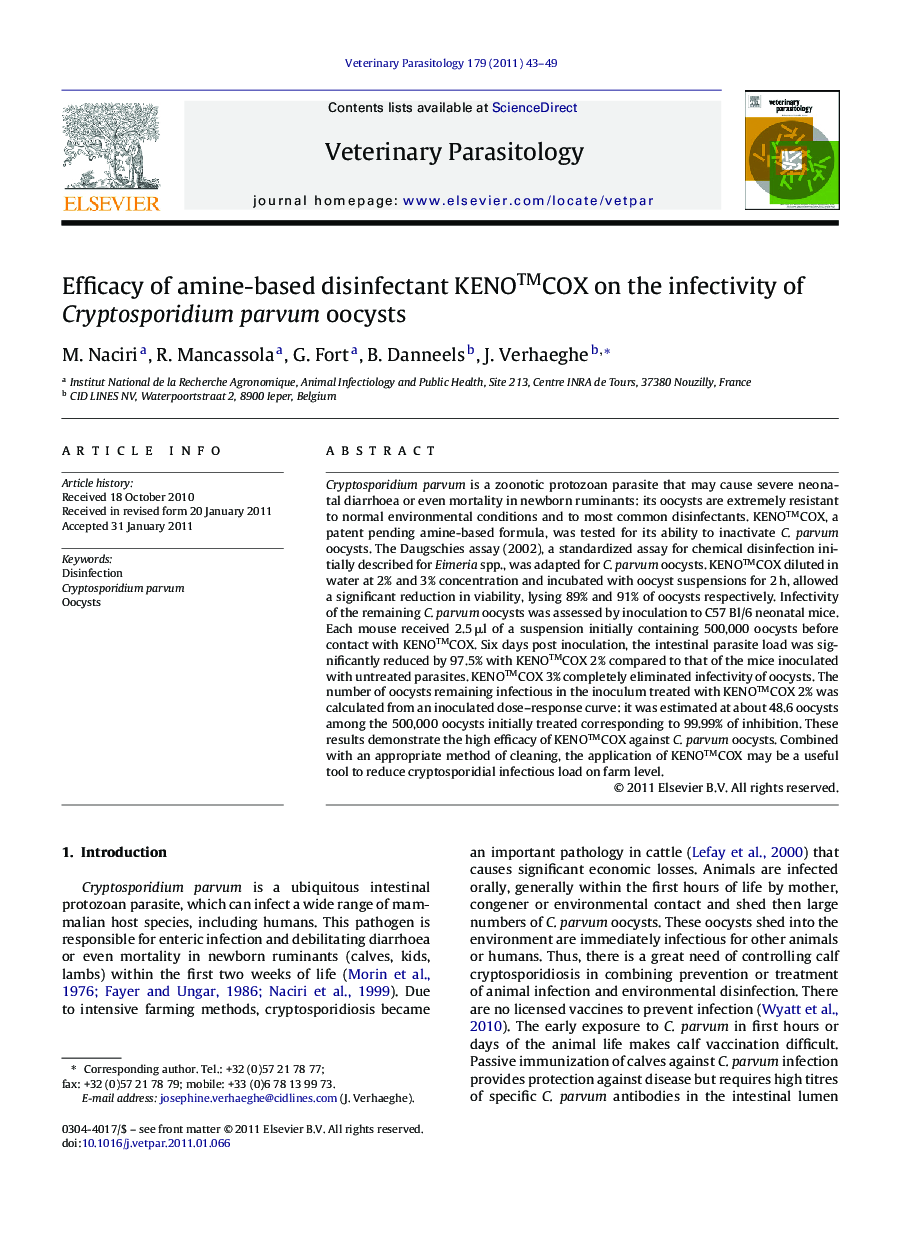| Article ID | Journal | Published Year | Pages | File Type |
|---|---|---|---|---|
| 2470249 | Veterinary Parasitology | 2011 | 7 Pages |
Cryptosporidium parvum is a zoonotic protozoan parasite that may cause severe neonatal diarrhoea or even mortality in newborn ruminants: its oocysts are extremely resistant to normal environmental conditions and to most common disinfectants. KENO™COX, a patent pending amine-based formula, was tested for its ability to inactivate C. parvum oocysts. The Daugschies assay (2002), a standardized assay for chemical disinfection initially described for Eimeria spp., was adapted for C. parvum oocysts. KENO™COX diluted in water at 2% and 3% concentration and incubated with oocyst suspensions for 2 h, allowed a significant reduction in viability, lysing 89% and 91% of oocysts respectively. Infectivity of the remaining C. parvum oocysts was assessed by inoculation to C57 Bl/6 neonatal mice. Each mouse received 2.5 μl of a suspension initially containing 500,000 oocysts before contact with KENO™COX. Six days post inoculation, the intestinal parasite load was significantly reduced by 97.5% with KENO™COX 2% compared to that of the mice inoculated with untreated parasites. KENO™COX 3% completely eliminated infectivity of oocysts. The number of oocysts remaining infectious in the inoculum treated with KENO™COX 2% was calculated from an inoculated dose–response curve: it was estimated at about 48.6 oocysts among the 500,000 oocysts initially treated corresponding to 99.99% of inhibition. These results demonstrate the high efficacy of KENO™COX against C. parvum oocysts. Combined with an appropriate method of cleaning, the application of KENO™COX may be a useful tool to reduce cryptosporidial infectious load on farm level.
